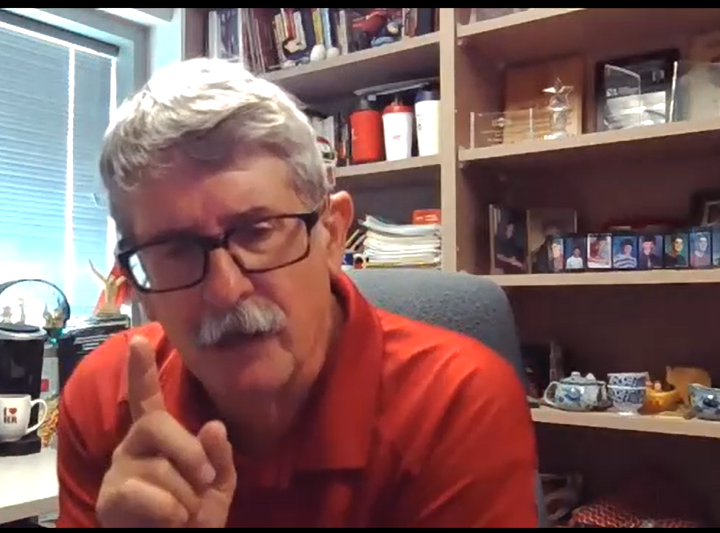
Sooner or later, you’ll be teaching.
Even if you’d never consider yourself a teacher.
Podcast: Play in new window | Download
Subscribe: RSS
So, how do you teach a work procedure, a concept or an actual workshop or class so that your listeners stay engaged? Especially if you’re delivering your message virtually?
Award-winning teacher Dr. Mark Johnson has the answer to that question.
Dr. Johnson teaches in numerous settings. He’s taught at Pittsburg State University in Pittsburg, Kansas, for just over thirty-six years. During that time, he’s also served as a training and development consultant for the apprenticeship industry.
In addition, he’s served as a training consultant for trade organizations including the International Alliance of Stage and Technical Employees Trust Fund. He also teaches an online MBA program in Human Resources. Not to mention youth leadership courses.
Oh, and he has a great TEDx talk about education: “Generation WHY?”. In this presentation, he pinpoints a fundamental, and ongoing, error he sees educators making as they teach classes.
Dr. Johnson talked about his experiences as a teacher, explained what makes a class compelling regardless of the subject, and offered some guidance on making your next online presentation a successful experience for you and your students.
On this edition of Over Coffee® we cover:
- What first sparked Dr. Johnson’s passion for teaching;
- How he first discovered “learning latency”, which he explores in his TEDx talk;
- An exercise illustrating this concept;
- How Dr. Johnson avoids this problem when teaching his students;
- How to make this principle work for online presentations;
- The key to success, in any teaching situation;
- What entertainers’ expertise can mean for educators;
- How to bring “dry” subject matter to life;
- Dr. Johnson’s recommendations for effective use of an online presentation tool;
- One of the most valuable lessons which he learned, about leadership, from his years as a leader;
- How to get students past the “intimidation factor” when they’re learning something new;
- How to guide students so their skills remain relevant in a changing world.
